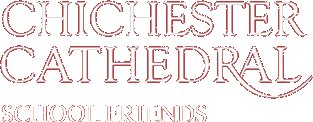‘Love life, love learning Love God’s World’
Our vision is to provide a nurturing, creative, Christian community where everyone will achieve with confidence and enjoyment. We will nurture growth and development in all aspects of school life so that everyone will embrace ‘Life in all its fullness.’ John 10:10.
Our school values:
Love – our core Christian value is central to every decision and action we take. We are all loved by God: in return we love life, love learning and love God’s world. Three main Christian values underpin this: compassion, respect, hope.
Compassion – caring about someone else’s feelings and trying our best to understand how others might be feeling, and offering to help that person
Respect – for others and our environment. We are all different and think differently but we are all special, and we celebrate our differences. We treat others as we would like to be treated.
Hope – we have high hopes and aspirations for our future, our school and community. We understand that faith gives us hope, and this hope brings confidence. We know that there is always a future whatever situation we are in, because God promised to never leave us, to always love us, and to help us in times of need.
At Rumboldswhyke, Religious Education is a very important part of the curriculum. It is vital in developing a well-rounded, happy, educated child. To be aware of the feelings and beliefs of others is very important, and greater still is the ability to be able to have respect and empathise with other people.
Our school is situated in an area which is not rich in cultural diversity, and we feel it is therefore very important that our children are given opportunities to learn and understand about the wide-ranging groups they may encounter at some time in their lives. Our curriculum provision generally is planned to provide opportunities for children to learn about people from a variety of races, cultures and faiths. Specific teaching on these aspects is included in our R.E. curriculum, where it is developed alongside an ongoing awareness and understanding of the Christian Church.
For our work in R.E. we follow the West Sussex Agreed Syllabus which identifies what children should be taught at different stages of their education. We use the Understanding Christianity resource, developed in conjunction with the Church of England Education Office.
Operating on a 2-year cycle, we have been able develop the children’s knowledge of R.E. as well as focussing separately on different religions, through our learning experiences.
We have found that the children gain a deeper understanding when they become familiar with Christian beliefs before being asked to consider and compare their own experiences with other world religions.
School Worship
Worship is held daily. Our worship sessions are linked to the values taught through our learning experiences. We share a monthly value which ensures the values that underpin our curriculum are linked with biblical scripture. This is run over a two-yearly cycle (see table below). We use the Church of England’s Faith at Home resources to supplement our worship sessions.
| Year A | Year B | |
| September | Friendship/ Thankfulness (Harvest) | Creativity (fairness 2021) Harvest |
| October | Resilience | Belonging |
| November | Courage | Justice/ Fairness |
| December | Hope/ Christmas/ Advent | Patience |
| January | Inspire- people / Jesus – Parables | Pride |
| February | Responsibility | Cooperation |
| March | Humility/ Easter | Kindness/ Easter |
| April | Compassion/ Pentecost | Forgiveness/ Pentecost |
| May | Respect | Equality/ Diversity and Inclusion |
| June | Trust / Values 4 life | Honesty |
| July | Love | Achievement/ Flourishing |
Everyone comes into the hall in silence to listen to a piece of music, a special table is placed in front of the children with a candle, and possibly, an artefact which supports the assembly theme. With this at the centre the children are encouraged to focus their thoughts in a calm, reflective manner. The lighting of the candle signals the beginning of the act of worship. Children are invited to extinguish the candle to signify the end of worship.
We also say grace at the beginning of lunch everyday and have a class prayer at the end of the day.
The school enjoys strong links with the Rector of St George’s church, who normally leads collective worship in school every week and we maximise the opportunity of using our local church throughout the year for whole school acts of worship on significant days, and celebrations we share with our families and members of St George’s.



